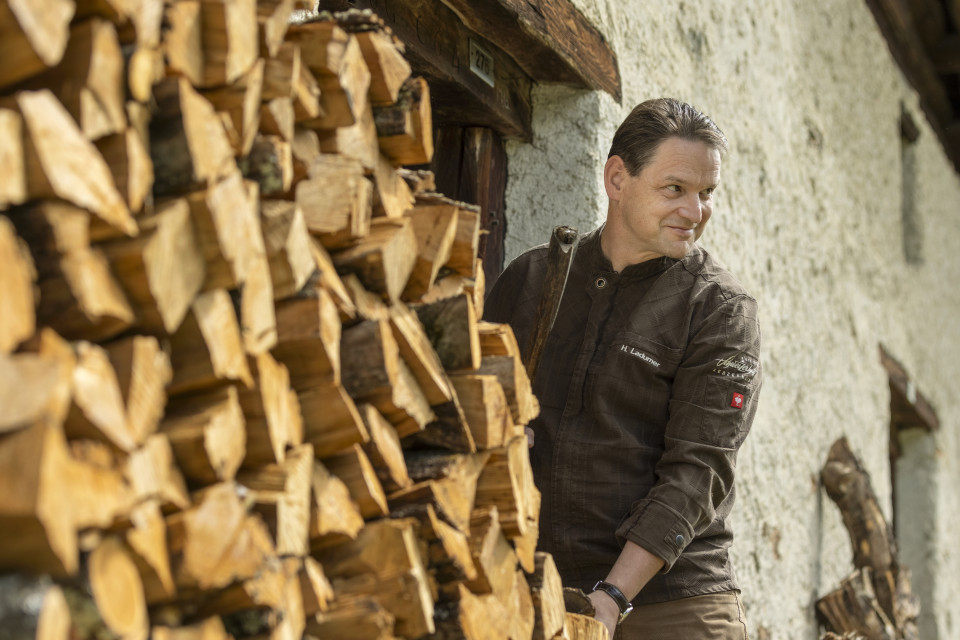Looking for a present? The gift that's also a good deed!
«Nowadays we're going back to our origins, and we want to eat food that is available locally and produced sustainably»
Hansjörg Ladurner still has a very clear recollection of the turning point when he decided to concentrate entirely on sustainable cuisine. It came some years ago during the hunting season, when he wanted to have an ibex on the menu. He was left with no choice but to adopt the "nose-to-tail" approach for the first time. "In the Alpine region, you see, ibex hunting means that you have to negotiate with the local hunters," Hansjörg Ladurner explains. "And I'm not in a position to tell them that I'd just like the animal's loins, if you please. You're simply handed a complete animal."

But that presents no problem for Ladurner. Back in his childhood days in South Tyrol, he would clamber onto the trucks as they arrived to pick out the local fruit and vegetables that were available so he could cook with them. "Nowadays we're going back to our origins, and we want to eat food that is available locally and produced sustainably." To be more precise, "nose-to-tail" means that he makes use of the entire ibex: as well as fillets, he offers specialities such as an "Ibex-Burger" that also utilises other parts of the animal. "I process no more than six animals in a year." A yak from the region is among them, and of course there are also his legendary pig's head pralines.

«It's a pity that so much old knowledge has been lost – and now we have to acquire it all over again»
Star chef Hansjörg Ladurner was awarded the Michelin Green Star for several reasons: sustainable cultivation of potatoes, cereals and vegetables on the restaurant's own farmland, exclusively seasonal cuisine, and the certain knowledge that all the fish and meat served at table comes from creatures who were able to lead a happy life thanks to producers who cared for them properly. Chef Ladurner also takes care of bees. Together with an apiarist, he looks after six beehives located directly adjacent to the restaurant. This includes care and supervision of the bees, observing them during the swarming season, and also capturing the swarm. Everything here is home-made – even the "alpine pasta", which includes noodles and a number of Swiss pasta-style specialities: Schlutzer, Pizzoccheri, Magronen, Plattlen, Spaetzle, Pizokels, Mariölins and Capuns. "Depending on the type of dish, I use durum wheat flour from the Dusch organic farm in Paspels or flour from the Albula Valley. The eggs for our pasta are laid by our Swiss chickens who are looked after by Petra, a lady farmer in Muldain." Ladurner also bakes bread according to the old traditions and grows local cereals that many have already forgotten. "It's a pity that so much old knowledge has been lost – and now we have to acquire it all over again."

Other "Responsible Hotels of Switzerland" are also engaged in this pioneering work. The Castello del Sole in Ascona, for instance, has also been awarded a Michelin Green Star. And the "nose-to-tail" principle is followed by chefs in the Hotels Valbella and Belvedere in Scuol, the Hotel Glocke in Goms, the Fafleralp in the Lötschental Valley, and many more besides.
